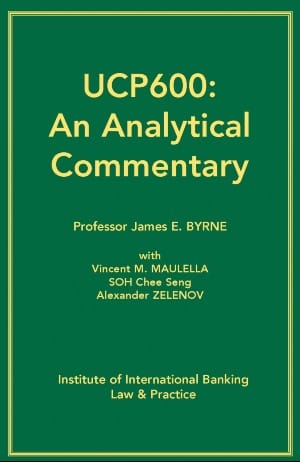Modifications and Exclusions of UCP600 Articles in Commercial Letters of Credit
Practical advice for modifying and excluding UCP600 articles in commercial letters of credit.

Since the inception of UCP600 in 2007, a lot of discussion has taken place among trade finance professionals and, in particular, within the LC community around the need for modification or exclusion of certain rules for commercial letters of credit issued under UCP600 and the consequences of such modifications/ exclusions.
UCP600 allows for the exclusion or modification of its rules. The phrase “unless expressly modified or excluded by the credit” in UCP600 Article 1 affects every other article of UCP600, meaning that many articles of the rules could be modified or excluded. This made the phrase “unless otherwise stipulated in the Credit” or similar which appeared in many articles of UCP500 redundant and were therefore eliminated in UCP600. The UCP600 drafting group opined that it significantly improved the style and readability of the rules.

The Definitive Guide to UCP600
Exhaustive rule-by-rule handbook with analysis for sound drafting
Why Modifications and Exclusions are Used
No set of international rules can anticipate every scenario or situation to which the rules will be applied or used. Rules are devised to target appropriately the widest audience possible. In doing so, practice rules often purposely allow some flexibility to amend or modify provisions to accommodate unique circumstances. The UCP600 drafting group recognized that there will be occasions where a modification or exclusion would be required and explicitly allowed for such in UCP600 Article 1. A case in point would be a situation where the transit time of a shipment is very short – for instance, 15 days. If an LC were to allow for the default maximum presentation period of 21 days (UCP600 Article 14(c)), and the seller takes 21 days to present documents to the nominated bank, the goods will have arrived at the destination much earlier than the documents at the issuing bank’s counters and may incur demurrage. This is one amongst a myriad of situations that would necessitate modification of the rules.












